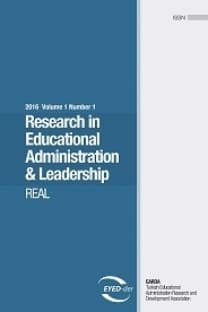A Multilateral Model for Decolonising African Educational Leadership: Addressing Conceptual Problems and Integrating the Past-Present Continuum across the Local-Global Axis
A Multilateral Model for Decolonising African Educational Leadership: Addressing Conceptual Problems and Integrating the Past-Present Continuum across the Local-Global Axis
Educational Leadership Practices, African-led educational innovation, multilateralism African early childhood education, Decolonized systems-change,
___
- Aide-et-Action (2014). About us. Retrieved from http://www.aide-et-action.org/about-us/.
- Anderson-Levitt, K. M. (2001). Ambivalences: La transformation d'une rénovation pédagogique dans un contexte postcolonial. Éducation et Sociétés, (1), 151-168.
- Anderson-Levitt, K. (2017). Global flows of competence-based approaches in primary and secondary education. Cahiers de la recherche sur l’éducation et les savoirs, (16), 47-72.
- Arowosegbe, J. O. (2021). Covid-19 and political modernity in Africa: Citizens' engagements and states' responses. The Psychological Studies of Social Issues, 24(1), 113-122.
- Yayın Aralığı: Yılda 4 Sayı
- Yayıncı: Dokuz Eylül Üniversitesi
Colleen LOOMİS, Abdeljalil AKKARİ
Theorising Context in Educational Leadership from a Relational Critical Realist Perspective
Decolonising Education Leadership Knowledge and Practice: What direction for Sub-Saharan Africa?
Rethinking Education Leadership through Self-Reflection: Examining the TURNS Model
Representations of School Leadership and Management in Africa: A Postcolonial Reading
